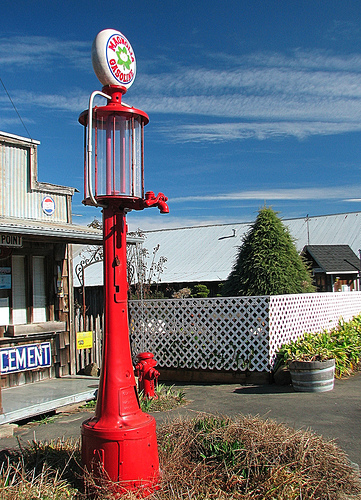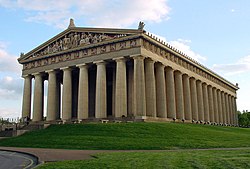chattanooga tennessee attorney Biogarphy
Source(google.com.pk)The Law Office of Jonathan T. Turner has a long history of providing exceptional criminal defense services in Chattanooga, Tennessee. Jonathan's track record for successful resolutions to even the most complex criminal matters is well known. If you or a loved one has been arrested or charged by the police or other agency, contact our firm immediately so that we can set up a free, absolutely confidential consultation to discuss your options and map out a course of action to protect your legal rights. Jonathan is committed to providing clients with honest and zealous representation, along with regular communication. We are committed to providing each client with a written retainer agreement, specifically describing the services to be performed, and the exact expense anticipated. All telephone calls and electronic communication will be answered and returned promptly. The attorneys and staff of the Jonathan T. Turner know and understand that communication is important in every case. CONTACT THE OFFICES OF JONATHAN T. TURNER IMMEDIATELY TO SET UP YOUR FREE CONSULTATION. WE WILL PROVIDE YOU OR YOUR LOVED ONE WITH SUPERIOR LEGAL REPRESENTATION. WE WILL THOROUGHLY INVESTIGATE THE CHARGES AGAINST YOU OR YOUR LOVED ONE AND WILL WORK TO HAVE THEM LOWERED OR DISMISSED ALTOGETHER.We serve Chattanooga and all surrounding areas. NASHVILLE, June 1, 2010 — Chattanooga attorney Sam D. Elliott will take office as the Tennessee Bar Association's 128th president this Thursday at the association's annual convention in Nashville. He will be given the oath of office by Tennessee Supreme Court Chief Justice Janice Holder.Elliott, known for his scholarly study of Tennessee in the Civil War era, plans to make civics education a focus of his year in office. To encourage Tennessee's young people to explore legal developments in the state's history, Elliott has proposed a video contest on the theme "Tennessee's Unique History of Law & Liberty." Middle and high school students will be challenged to produce a three-minute video that tells the story of an event, person or legal development that has played an important role in Tennessee's history. Students will compete for cash prizes and an opportunity to present their video to leaders of the state's legal community. Elliott stated, "Our young people are the future of our state and country, and we should look for innovative ways to educate and engage them in ways that will enable them to understand the structure of our government, and appreciate its past."Elliott also has announced that he will use his year in office to study foreclosure reform, and to continue the Tennessee Bar's award-winning efforts to increase access to justice for Tennessee's economically disadvantaged citizens.Elliott is a member in the Chattanooga firm of Gearhiser, Peters, Cavett, Elliott & Cannon, where he practices in the field of civil litigation. His experience includes handling cases involving products liability, personal injury, employment discrimination and eminent domain. In addition, he advises clients on issues of employment law, environmental law, commercial disputes and professional liability. He also represents the municipal governments of Soddy Daisy, Collegedale and Lakesite.After earning a law degree from the University of Tennessee College of Law in 1981, Elliott began his career clerking for then U.S. Magistrate Roger Dickson. He then joined the Gearhiser Peters firm, where he has worked ever since. Elliott served as president of the Chattanooga Bar Association in 2001 after serving on its board of governors for five years. For the Tennessee Bar Association, he has served in various capacities since 2004, including member of the board of governors, chair of the board's Operations Committee, and chairman of the association's Judicial Campaign Conduct Committee. He also is a member of the Justices Brock and Cooper American Inns of Court in Chattanooga, the Tennessee Municipal Attorneys Association, Chattanooga Trial Lawyers Association, Federal Bar Association and American Bar Association, and is a fellow of the American, Tennessee and Chattanooga bar foundations.Elliott is the author of Soldier of Tennessee: General Alexander P. Stewart and the Civil War in the West (1999) and the editor of Doctor Quintard: Chaplain C. S. A. and Second Bishop of Tennessee (2003). His newest book is Isham G. Harris of Tennessee: Confederate Governor and United States Senator (2010), and he will present the keynote address on the coming of the Civil War in Tennessee during the first signature event presented by the Tennessee Civil War SesquicentennIn the community, Elliott is the current chair of the Tennessee Historical Commission, and was recently reappointed to a second five-year term on the commission. He also serves on the board of the Tennessee Civil War Preservation Association and is a member of the Rotary Club of Chattanooga and Friends of University of Tennessee Library Executive Committee. He is former board member of the National Association for the Craniofacially Handicapped (FACES) and the former president of the Friends of the Chickamauga and Chattanooga National Military Park. Elliott is a trustee at his church, Signal Mountain Presbyterian, and a frequent volunteer for Legal Aid of East Tennessee, which provides free legal services to those who cannot afford a lawyer.Taking office along with Elliott will be President-elect Danny Van Horn of Memphis and Vice President Jacqueline B. Dixon of Nashville. Van Horn is with the Memphis law firm of Butler, Snow, O'Mara & Cannada, where he leads the Commercial Litigation Group and handles cases involving business torts, unfair competition, insurance coverage and product liability. Dixon is a partner in the firm of Weatherly McNally & Dixon PLC, where she focuses on personal injury and wrongful death, domestic relations and probate cases.The 2010 Tennessee Bar Association Annual Convention will be held in conjunction with three other legal organizations -- the Tennessee Alliance for Black Lawyers (TABL), the Tennessee Asian Pacific American Bar Association (TAPABA) and the Tennessee Lawyers' Association for Women (TLAW). This joint meeting structure allows the groups to address common issues and concerns. It also offers opportunities for additional education, long-range planning, and recognition of attorneys who have performed outstanding legal work and community service.
Students will compete for cash prizes and an opportunity to present their video to leaders of the state's legal community.Mr. Elliott said, "Our young people are the future of our state and country, and we should look forinnovative ways to educate and engage them in ways that will enable them to understand the structure of our government, and appreciate its past.". Elliott has announced that he will also use his year in office to study foreclosure reform, and to continue the Tennessee Bar's award-winning efforts to increase access to justice for Tennessee's economically disadvantaged citizens.Mr. Elliott is a member in the Chattanooga firm of Gearhiser, Peters, Cavett, Elliott & Cannon, where he practices in the field of civil litigation. His experience includes handling cases involving products liability, personal injury, employment discrimination and eminent domain. In addition, he advises clients on issues of employment law, environmental law, commercial disputes and professional liability. He also represents the municipal governments of Soddy Daisy, Collegedale and Lakesite.After earning a law degree from the University of Tennessee College of Law in 1981, Mr. Elliott began his career clerking for then U.S. Magistrate Roger Dickson. He then joined the Gearhiser Peters firm, where he has worked ever sincMr. Elliott served as president of the Chattanooga Bar Association in 2001 after serving on its board of governors for five years. For the Tennessee Bar Association, he has served in various capacities since 2004, including member of the board of governors, chair of the board's Operations Committee, and chairman of the association's Judicial Campaign Conduct Committee. He also is a member of the Justices Brock and Cooper American Inns of Court in Chattanooga, the Tennessee Municipal Attorneys Association, Chattanooga Trial Lawyers Association, Federal Bar Association and American Bar Association, and is a fellow of the American, Tennessee and Chattanooga bar foundations.Mr. Elliott is the author of Soldier of Tennessee: General Alexander P. Stewart and the Civil War in the West (1999) and the editor of Doctor Quintard: Chaplain C. S. A. and Second Bishop of Tennessee (2003). His newest book is Isham G. Harris of Tennessee: Confederate Governor and United States Senator (2010), and he will present the keynote address on the coming of the Civil War in Tennessee during the first signature event presented by the Tennessee Civil War Sesquicentennial Commission in November 2010.In the community, Mr. Elliott is the current chair of the Tennessee Historical Commission, and was recently reappointed to a second five-year term on the commission. He also serves on the board of the Tennessee Civil War Preservation Association and is a member of the Rotary Club of Chattanooga and Friends of University of Tennessee Library Executive Committee. He is former board member of the National Association for the Craniofacially Handicapped (FACES) and the former president of the Friends of the Chickamauga and Chattanooga National Military Park.Mr. Elliott is a trustee at his church, Signal Mountain Presbyterian, and a frequent volunteer for Legal Aid of East Tennessee, which provides free legal services to those who cannot afford a lawyer.Taking office along with Mr. Elliott will be President-elect Danny Van Horn of Memphis and Vice President Jacqueline B. Dixon of Nashville. Mr. Van Horn is with the Memphis law firm of Butler, Snow, O'Mara & Cannada, where he leads the Commercial Litigation Group and handles cases involving business torts, unfair competition, insurance coverage and product liability. Ms. Dixon is a partner in the firm of Weatherly McNally & Dixon PLC, where she focuses on personal injury and wrongful death, domestic relations, and probate cases.The 2010 Tennessee Bar Association Annual Convention will be held in conjunction with three other legal organizations- the Tennessee Alliance for Black Lawyers, the Tennessee Asian Pacific American Bar Association and the Tennessee Lawyers' Association for Women. This joint meeting structure allows the groups to address common issues and concerns. It also offers opportunities for additional education, long-range planning, and recognition of attorneys who have performed outstanding legal work and community service.
chattanooga tennessee attorney Wallpaper Photos Pictures Pics Images 2013

chattanooga tennessee attorney Wallpaper Photos Pictures Pics Images 2013

chattanooga tennessee attorney Wallpaper Photos Pictures Pics Images 2013

chattanooga tennessee attorney Wallpaper Photos Pictures Pics Images 2013

chattanooga tennessee attorney Wallpaper Photos Pictures Pics Images 2013

chattanooga tennessee attorney Wallpaper Photos Pictures Pics Images 2013

chattanooga tennessee attorney Wallpaper Photos Pictures Pics Images 2013

chattanooga tennessee attorney Wallpaper Photos Pictures Pics Images 2013

chattanooga tennessee attorney Wallpaper Photos Pictures Pics Images 2013

chattanooga tennessee attorney Wallpaper Photos Pictures Pics Images 2013

chattanooga tennessee attorney Wallpaper Photos Pictures Pics Images 2013














































